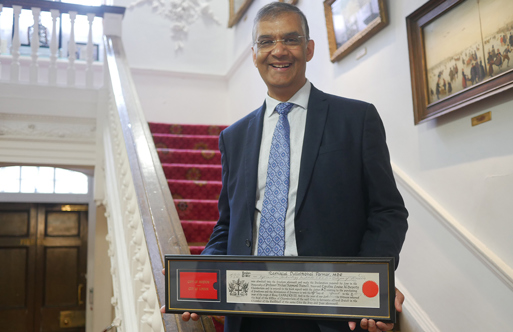This year’s BCS Lovelace Medal was won jointly by two projects, one being driven by Professor Ian Horrocks of Oxford University.
Professor Horrocks has been recognised for his major contributions to the development of modern description logics and reasoning systems, in their adoption as the basis for ontology languages, and in the development and standardisation of the W3C's OWL ontology language.
Though complex in nature, reasoning systems are all around us, powering devices like Siri and Alexa and helping Google search out the information we’re looking for online.
Why don’t you introduce yourself?
So, I'm Ian Horrocks. I'm a Professor at the University of Oxford and I'm working in the area that, I suppose, is broadly known as knowledge representation and reasoning. It's a subfield of AI although these days a lot of people seem to think AI only means machine learning - but we were there first, long before these machine learning people became so dominant!
It's all about formalising knowledge in a way that allows you to reason about it, answer questions about the knowledge, reveal things that you didn't know you know because it requires some kind of complicated reasoning process. And nowadays, the main sort of incarnation of that you see is in things like knowledge graphs, a kind of large-scale knowledge resource that are pretty widely used.
What does winning the BCS Lovelace Medal mean to you, personally?
It's a great honour personally to receive the award. It's particularly nice to receive an award that's named after an important pioneer of algorithm design, which is what I think of myself as doing.
But also, I'd like to say that I think it's really important as recognition for work in the area. I don't want to represent it as being my personal work, it's work that I've carried out with a whole bunch of collaborators - brilliant people that I've been lucky enough to work with and of course builds on the work of many other researchers across the area.
Where did your fascination with the subject begin?
At the beginning, I was motivated by applications in medical and bioinformatics and in particular I started out working with a group that was looking at the development of large structured vocabularies that they use a lot in medicine. They use those to standardise, exchange and query health data.
This is extremely useful, for example, in epidemiological studies and is very topical. There must be a huge amount of research going on into COVID-19 and all the kind of associated risks, treatments, whatever at the moment.
A lot of that involves looking at data that's coming in from all over the world. How do you integrate that data if it's coming from all different health systems, using different languages? Well, basically they use these large vocabularies that structure medical knowledge.
Where might we encounter your work as we go about our everyday digital lives?
Reasoning systems are more like an embedded technology, somewhat like a database. Typically, nobody really notices those things until they break. While they're working smoothly it's just purring away underneath - like the engine in your car.
They're underpinning a lot of stuff that we're using these days. For example, all these digital assistants that have become very popular now - Google Alexa, Siri - I guess most people are using them to some extent.
Actually, they all have these huge knowledge graphs which are a kind of explicit representation of knowledge in the world. These systems are used to support whatever they do, and to answer any direct questions you ask. They all use reasoning systems to help them develop and maintain those huge knowledge resources.
So, when you're asking: ‘Hey, Siri. How tall is the Eiffel Tower?’ Siri will come back and tell you it's however many hundred metres tall. It knows that, because it looked in its knowledge graph and that information is stored there. It keeps all that information in good order using reasoning systems amongst other tools.
I already mentioned the medical applications. They have now become really mainstream. There's an organisation called SNOMED that builds and maintains a very large medical terminology ontology that's used in the National Health Service and the health services of more than 80 other countries around the world. And they actually build and maintain that thing using a reasoner that we developed at Oxford.

















